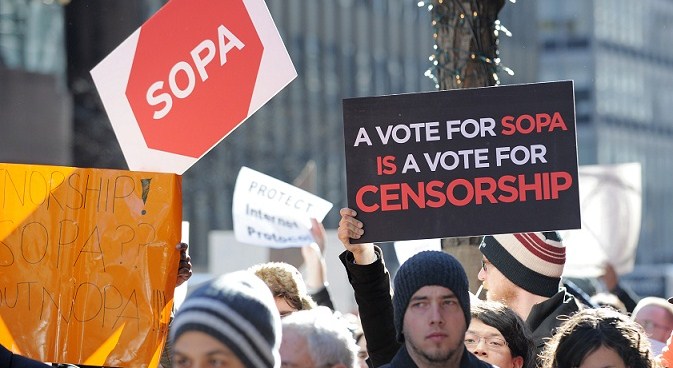First they came after dissenting newspapers such as Realni Azerbaijan. Then they came after foreign broadcasts such as BBC and Radio Free Europe. Now, just weeks before the March 18, 2009 constitutional referendum that would institute unlimited presidency, the government of Azerbaijan is allegedly censoring the content of a popular and semi-independent website, www.day.az. In the words of Global Voices Online:
“[…] the content of a leading news site considered more independent than most in Azerbaijan was replaced on Thursday with a message informing readers that the “project is closed.
A day later, after the authorities denied allegations that they were behind the disappearance of day.az, a new message instead explained that the site was down for technical reasons and would reappear after 25 February.
Blogs by media specialists and analysts in Azerbaijan, however, were not convinced.”
Given that the “temporary” closure of Day.az was done without a court order – unlike in the case of other media restrictions in Azerbaijan – it has been assumed that the website will reopen with censored content.
The mainly Russian-language Day.az has been a valuable source of information about Azerbaijan and the region. In addition to original reporting, the website has been republishing information from a variety of regional sources, even posting full PanArmenian.net articles from neighboring Armenia. Azerbaijan and Armenia are technically at war, although the 1994 ceasefire blocked full-scale clashes, over the disputed region of Nagorno-Karabakh.
In addition to the news section, the website has been offering a popular forum. One of the most popular online portals in the entire former Soviet Union, the Russian-language forum at Day.az has had thousands of active users. One of the hottest sections of the forum has been “Armenia and Azerbaijan.”
In November 2004, as a Russian-language Armenian forum user reported at the time, the administration of the Day.az forum promoted its first Armenian moderator, Arthur, giving him the privilege to delete/edit offensive and/or unrelated content from discussions.
The appointment was indeed unprecedented, as the Russian-language announcement from the Day.az forum administrator explained:
“For the first time in the virtual world, a user of Armenian nationality – the respected Arthur – has become the Moderator of an Azerbaijani forum.
We should note that we came to [this decision] after a long year… of surveys, nominees, consultations with other Moderators… and taking into account the opinions of well-respected users. […] It shows also high level of the Armenian users, and atmosphere of tolerance which has developed at this forum.
[…]
P.S. And now you can throw stones at me.”
Another, more recent, controversial move at the forum has been the creation of a private section where users with over 500 posts could discuss and post adult content.
What will be different on Day.az if it reopens on February 25, 2009?
By: Simon Maghakyan, Eurasia Country Specialist

 I wasn’t going to post again today, but I was just reading
I wasn’t going to post again today, but I was just reading